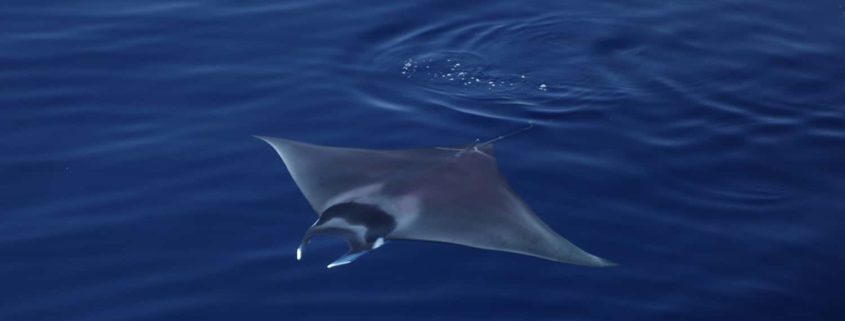Joint Press Release on the recent unfortunate incident of nine Giant devil rays landed in Tunisia
Tunisia, April 8th, 2019
A new unfortunate incident took place this weekend in Port De Peche Kelibia, Tunisia, where nine Giant devil rays (Mobula mobular) were landed. The rays were captured as bycatch by a purse seine and consequently were landed and sold.
The Giant Devil Ray Mobula mobular (Bonnaterre, 1788) is one of the charismatic animals of our oceans with recent studies suggesting that is a cosmopolitan species. The Mediterranean population of the species has suffered a serious population reduction of at least 50% over three generations (60 years), as a result of incidental bycatch in several locations within its range but also due to the recently discovered directed fishery by Palestinian fishers.
In 2006 the Mediterranean population of the Giant Devil Rays were assessed as Endangered on the IUCN’s Red List of threatened species; listed on a number of International Agreements, and in Annex II of the Barcelona Convention SPA/BD Protocol, Furthermore, the parties to the Barcelona Convention, Tunisia included, agreed that this species cannot be retained on board, trans-shipped, landed, transferred, stored, sold, displayed or offered for sale, and must be released unharmed and alive, to the extent possible, pursuant to Recommendation GFCM/36/2012/3*. It should be also noted that Giant Devil Rays are protected under EU law and a number of national laws in Croatia, Malta, Israel, Greece and Turkey.
Although it is possible that these animals were caught accidentally, it is intended that fishers release them alive. In the reported case, the individuals were captured with purse seine a fishing method that allows releasing the animals without hauling them aboard, thereby ensuring their survival.
It is particularly important that competent authorities to pay close attention to such incidents, taking into account the existing protection and conservation status of the species, and the fact that such accidental captures could allow the development of an illegal market. This could threaten the survival of the Giant Devil Ray, a species that exhibits low reproductive and growth rates, long lifespan and migratory nature. International legal and binding conservation measures for sharks and rays have been established in the Mediterranean, but the implementation is generally poor. We call upon the Tunisian state to adopt a domestic protection measure for the Giant Devil Ray and all species included in the GFCM/36/2012/3 list, and to further enforce the implementation of all existing binding measures that are yet to be effectively enforced, and could contribute significantly to the conservation of these charismatic species. In addition, we urge all Mediterranean countries to co-operate and enforce such commitments. In parallel it is important to educate and inform fishers, involved stakeholders, and the general public on the value and status of such iconic and unique marine animals, that serve as flagship species for the conservation of the Mediterranean basin.









